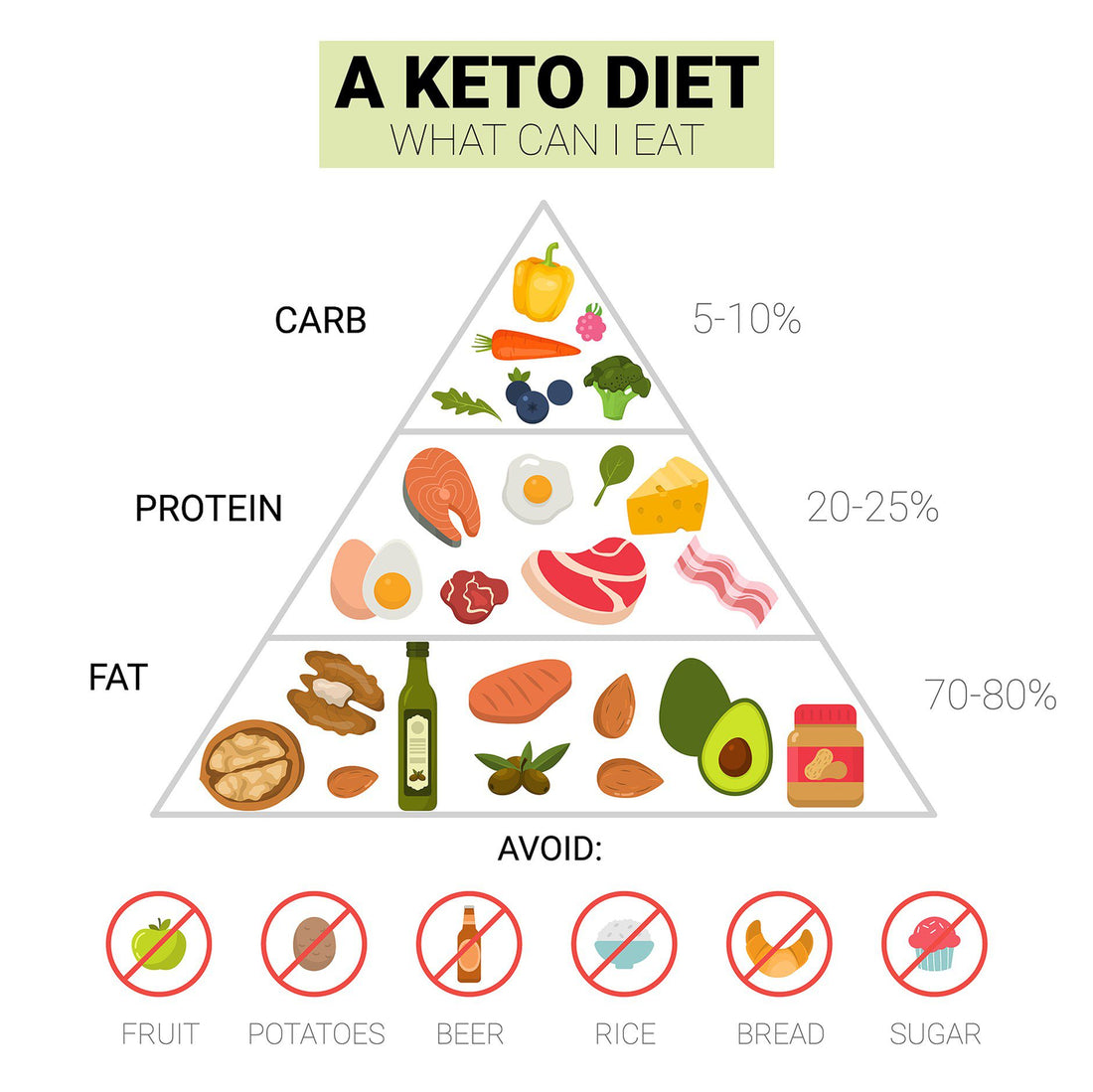In the realm of weight-loss diets, there's one that has been getting a lot of attention lately: the ketogenic diet. You may have heard about it from friends, family, or even celebrities who swear by its effectiveness. But what exactly is the ketogenic diet, and is it really worth all the hype? In this article, we'll delve into the details of this popular eating plan and explore if it lives up to its claims.
Unlike other low-carb diets like Paleo, South Beach, or Atkins, the ketogenic diet takes a different approach. While these diets focus on protein, the keto plan is centered around fat, with fat supplying up to 90% of your daily calories. But before you jump on the keto bandwagon, it's important to understand that this diet was primarily developed to help reduce the frequency of epileptic seizures in children. Its effectiveness for weight loss has only been studied in the short term, and the results have been mixed, making the long-term efficacy and safety of the diet uncertain.
So how does the ketogenic diet work? The primary goal of keto is to shift your body's fuel source from glucose obtained from carbohydrates to ketone bodies, which are produced by the liver from stored fat. This is achieved by drastically reducing your carbohydrate intake to below 20-50 grams per day. However, reaching a state of ketosis can take a few days, and eating too much protein can interfere with this process.
When following the keto diet, you'll have to consume a high amount of fat at each meal. In a 2,000-calorie daily diet, this might look like 165 grams of fat, 40 grams of carbs, and 75 grams of protein, although the exact ratio may vary based on individual needs. While healthy unsaturated fats like nuts, seeds, avocados, tofu, and olive oil are allowed on the keto diet, saturated fats from oils like palm and coconut, lard, butter, and cocoa butter are encouraged in high amounts. Additionally, the diet doesn't differentiate between lean protein sources and those high in saturated fat, such as beef, pork, and bacon.
When it comes to fruit and vegetable consumption, most fruits are restricted on the keto diet due to their carb content. However, small portions of certain fruits, usually berries, can be included. As for vegetables, leafy greens like kale, Swiss chard, and spinach, along with cauliflower, broccoli, Brussels sprouts, asparagus, bell peppers, onions, garlic, mushrooms, cucumber, celery, and summer squashes are allowed. A cup of chopped broccoli, for example, contains about six carbs.
While the ketogenic diet may have its appeal, it's essential to be aware of the potential risks associated with it. The high intake of saturated fat, which is encouraged on the keto diet, has been linked to heart disease. Furthermore, following a restrictive diet like keto may put you at risk for nutrient deficiencies, particularly in micronutrients like selenium, magnesium, phosphorus, and vitamins B and C. Additionally, the diet could worsen existing liver conditions due to the increased fat workload on the liver. Kidney problems can also arise as the kidneys struggle to metabolize excess protein, and the low-fiber nature of the diet can lead to constipation. Lastly, the brain relies on sugar from healthy carbohydrates to function optimally, so low-carb diets may potentially cause cognitive issues and mood swings.
Before embarking on a ketogenic diet, it's crucial to consult with a doctor and a registered dietitian to ensure it's safe for you and to receive personalized guidance. It's also worth noting that popular low-carb diets like Atkins or Paleo may modify the true ketogenic diet, but they come with similar risks if fats and proteins are overconsumed while carbohydrates are significantly restricted. While anecdotal success stories may exist, the long-term sustainability and effectiveness of a restrictive diet like this remain uncertain. Once you return to a normal diet, the weight lost during the keto plan is likely to come back.
In conclusion, the ketogenic diet may seem like a tempting option for weight loss and other health benefits, but it's essential to approach it with caution. Consider the potential risks, consult experts, and focus on sustainable, balanced eating habits for long-term success. Balance is key, and it's always best to prioritize your overall health and well-being over quick-fix solutions.

